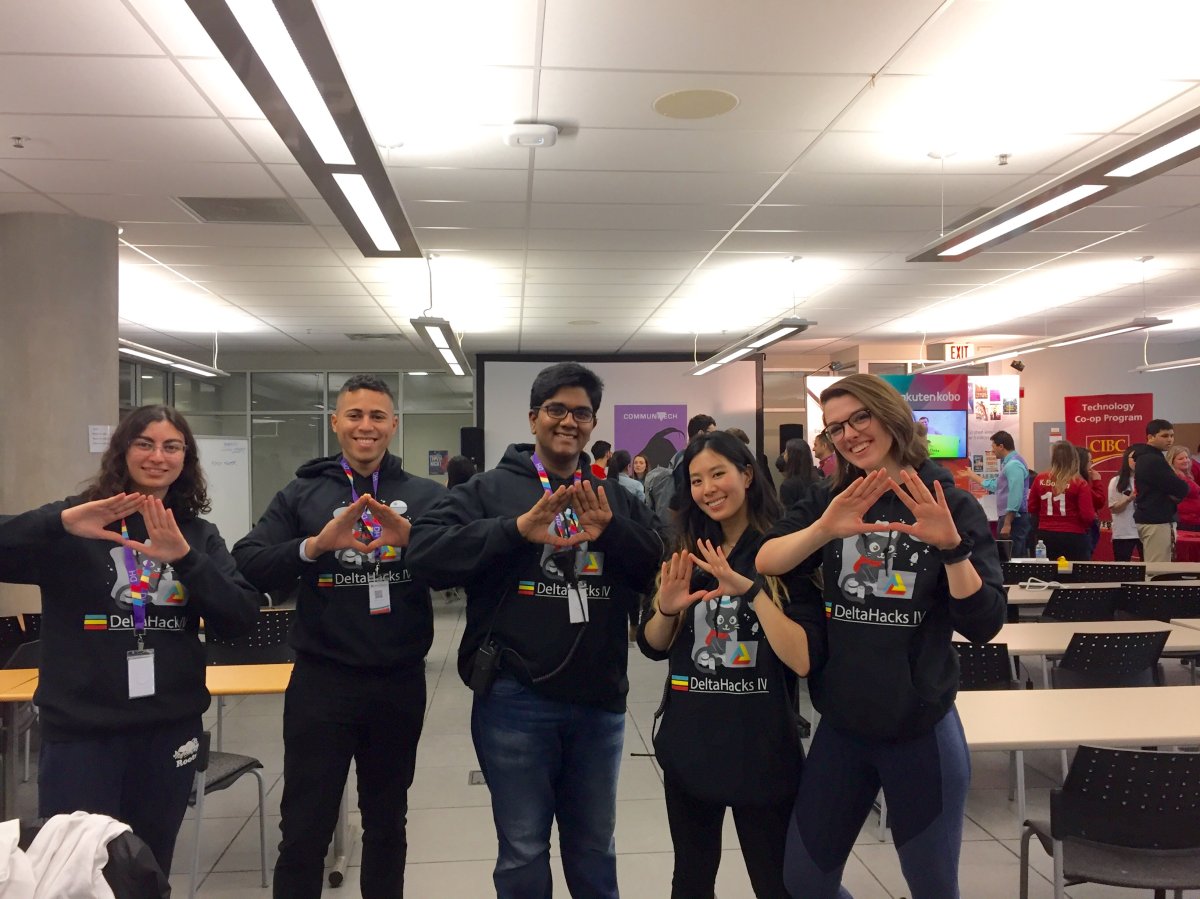Hundreds of students brought their ingenuity and technological skills to the table for a 24-hour marathon hacking event at McMaster University this weekend.

The fourth annual DeltaHacks hackathon kicked off at noon on Saturday, with students focused on designing and building applications to fix real-world problems.
READ MORE: McMaster University lands $19 million in federal health research dollars
Stephanie Koehl is president of the student group PhaseOne, which has been organizing DeltaHacks for the past four years.
While the term ‘hacking’ is specific to computer programming and software, she said the event is open to university students from all areas of study who have an idea for a project that will contribute positively to society.
“The point of the event is to give them all the resources that they could possibly need to work on this project,” Koehl said. “So we have workshops where they can learn new skills, we have mentors that will help them with anything that they need help with. We give them food and sleeping arrangements, so there’s really no barrier to attendance and the event is completely free.”
Koehl said there are hackathons at universities across North America but McMaster’s DeltaHacks is unique because its theme is ‘hack for change’, with an emphasis on having a positive effect on society.

Get daily National news
“Software engineers and computer scientists of today are like magicians because they can create something that can change the world in such a short amount of time with such little resources,” said Koehl.
READ MORE: McMaster University hopes for accord with neighbours over residence plan
- ‘Alarming trend’ of more international students claiming asylum: minister
- Why B.C. election could serve as a ‘trial run’ for next federal campaign
- Justin Trudeau headed to UN Summit of the Future amid international instability
- Canadian government’s satellite deal has Tories calling for Elon Musk involvement
Louise Gazzola, experiential program co-ordinator for McMaster’s Faculty of Engineering, said she helps students plan the event for the entire year but emphasized that it’s entirely run by students.
Gazzola added that the experience is crucial for making a student’s resume stand out when they apply for jobs after they graduate.
“For some employers, some of the top tech companies, one of the interview questions will be, ‘How many hackathons did you attend?’” Gazzola explained. “If you’re a top student, you’re here at your hackathon.”
Gazzola said one of the goals of the event is to connect what students are learning in the classroom with real-world experiences and giving them ideas about how they can contribute to society.
“It’s not just about making money for a company or making money for their own business,” said Gazzola. “There is the whole idea of giving back, and social entrepreneurship, which is a big part of what engineering students are supposed to think about – what they do think about.”
Kemal Ahmed has been mentoring other students at DeltaHacks for the past three years. He said he helps students who might be overwhelmed and unsure of how to apply their knowledge in a practical way.
“It’s very theoretical, what you’re learning in the classroom,” Ahmed said. “But when you come to this event, you really figure out how to use those skills and make connections with teams.”
The event culminates in a prize-giving ceremony on Sunday that recognizes the most outstanding projects of the weekend.
One of the winning projects from last year’s DeltaHacks event was LifeLine, an app with wearable hardware that senses when a driver is falling asleep at the wheel and wakes them up.
Gazzola said other projects from last year’s hackathon focused on issues more specific to Hamilton, which she added have evolved into some of the challenges faced by students at this year’s event.
“These are students that are here, they love the city that they’re in, they want to make Hamilton a better place,” she said. “It’s usually a big focus of what we’re doing, and hey, those students might stay here after they graduate, and make Hamilton a premier city, which I think it’s on the verge of being.”








Comments